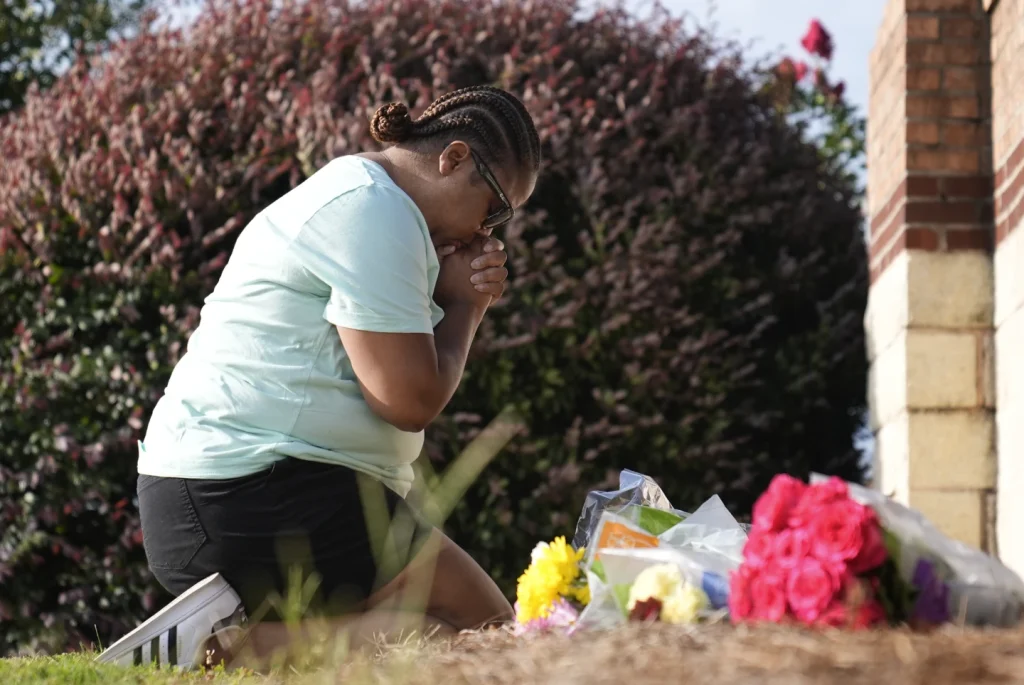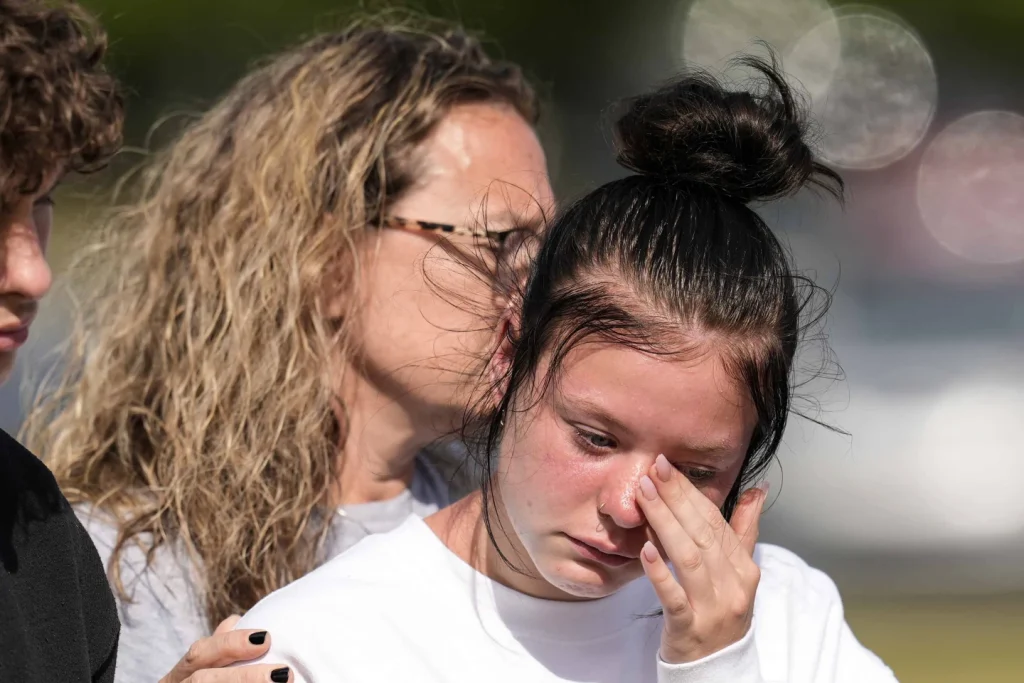In recent years, the rising incidence of school shootings in the United States has raised urgent questions about accountability, particularly concerning the role of parents in ensuring the safe use of firearms within their households.
A particularly striking case that exemplifies this complex issue emerged from Winder, Georgia, where the father of a 14-year-old boy, Colt Gray, was arrested following the tragic shooting spree at Apalachee High School.
The arrest not only highlights the direct consequences of parental negligence but also reflects an evolving legal landscape where parents and guardians may be held criminally liable for their children’s actions, particularly in the context of gun violence.
This essay seeks to explore the implications of this case, examining the legal dimensions of parental responsibility in incidents of mass shootings and the societal expectations surrounding firearm ownership and child supervision.
The unfortunate events at Apalachee High School resulted in the deaths of four individuals, including two 14-year-old students, Mason Schermerhorn and Christian Angulo, and two teachers, Richard Aspinwall and Cristina Irimie.
In the aftermath, the legal repercussions extended beyond the shooter, as his father, Colin Gray, faced multiple charges, including second-degree murder and involuntary manslaughter, emphasizing the gravity of his role in the tragedy.
Specifically, the Georgia Bureau of Investigation contended that Colin Gray’s allowance of his son to possess a firearm directly contributed to the calamity.
In this case, the law stipulates that second-degree murder charges can be applied when a person’s actions lead to another’s death while simultaneously committing acts of cruelty to children, reinforcing the notion that irresponsibility in parental supervision can lead to catastrophic outcomes.
The charges against Colin Gray represent a significant legal precedent, signaling a potential shift in how law enforcement and judicial systems may approach issues of firearm access and reckless parenting.
As defined under Georgia law, involuntary manslaughter involves the unintentional taking of life, yet it implicates a specific level of negligence or disregard for the potential consequences of one’s actions.
The legal framework available in Georgia provides for a punishment of 10 to 30 years for second-degree murder, underscoring the seriousness with which the state views unauthorized access to firearms by minors.
Colin Gray’s case is not an isolated incident but rather part of a broader trend of legal accountability directed towards parents in cases involving juvenile offenders.
The precedent set by the conviction of Jennifer and James Crumbley, the parents of the 2021 Oxford High School shooter in Michigan, indicates a growing recognition of the significant role that parents play in mitigating the risks associated with their children’s behavior, especially concerning firearms.
The Crumbleys were convicted for failing to secure their weapon and ignoring alarming signs regarding their son’s mental state, illustrating a troubling disconnect between responsible gun ownership and parental oversight.
This development raises essential questions about the societal expectations placed on parents concerning firearm safety and youth mental health.
There is a pressing need for a cultural shift that emphasizes the necessity of firearm training, safe storage practices, and vigilant monitoring of children’s mental health and social surroundings.
As parents become increasingly aware of their potential legal liabilities, the need for proactive measures in safeguarding children from the dangers associated with unsupervised access to firearms becomes not only a social imperative but a legal one as well.
The complexities surrounding the issue of parental responsibility in school shootings also involve psychological factors, including the mental health challenges faced by youth in contemporary society.
Reports indicated that Colt Gray struggled with familial issues, particularly concerning his parents’ separation and experiences of bullying at school.
These stressors may have contributed significantly to his psychological state, yet they also highlight the importance of parental involvement in recognizing and addressing mental health challenges in children.
The father’s assertion that his son was aware of the seriousness of weapons indicates a troubling juxtaposition between knowledge of firearm safety and the capacity to manage underlying emotional distress.

Society must grapple with the intertwined relationship between access to firearms, youth mental health, and parental obligations.
Education on the implications of gun ownership, combined with resources aimed at supporting mental health in adolescence, could serve as vital preventive measures against future tragedies.
Moreover, community programs that promote open dialogue between parents, educators, and mental health professionals can create a supportive network designed to assist children in navigating their emotional and social development.
The tragic incident at Apalachee High School serves as a stark reminder of the catastrophic consequences of negligence in firearm ownership and parental supervision.
Colin Gray’s legal entanglements underscore a significant legal and moral imperative for parents to actively engage in the safeguarding of firearms and the mental well-being of their children.
As the legal landscape continues to evolve, it is imperative for society to foster a culture of accountability, emphasizing the importance of responsible gun ownership and proactive mental health support.
Ultimately, the goal should be to prevent further tragedies by ensuring that children are raised in environments where safety, responsibility, and emotional health are prioritized.
In doing so, we can aspire to create a safer future for all students and communities, mitigating the risk of senseless violence and preserving the sanctity of educational institutions.
The implications of this case extend beyond the immediate tragedy; they provoke a re-evaluation of gun safety and parental responsibility within the context of youth behavior and mental health.
It raises crucial questions regarding how we, as a society, can better protect our children while ensuring that parents fulfill their obligations to supervise and guide their offspring.
The legal system’s approach in such cases may reflect a societal shift toward greater conscientiousness in safeguarding both individuals and communities from similar future tragedies.
In conclusion, the significant charges against Colin Gray serve as a stark reminder of the essential role that parental guidance plays in mitigating risks associated with firearms and violent behavior among youth.
As this case progresses, it will undoubtedly continue to capture public attention and bring to light critical discussions regarding accountability and preventive measures in ensuring the safety of our schools.
